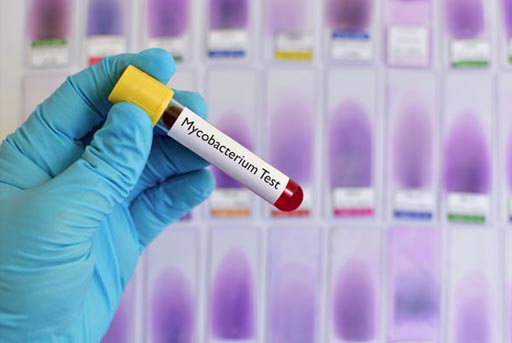Molecular Tests Predict TB Treatment Outcome
By LabMedica International staff writers
Posted on 14 Aug 2017
New molecular tests are gaining popularity as a rapid way to detect genetic mutations that render tuberculosis (TB) impervious to drugs. Yet, how well these new tests fare in gauging risk of actual drug failure has remained unclear. Researchers have now found that molecular tests that detect resistance to the fluoroquinolones class of TB drugs may be at least as good as traditional drug-sensitivity tests conducted with lab cultures.Posted on 14 Aug 2017
Traditional drug-sensitivity culture tests, which involve exposing a bacterial strain to a series of drugs to determine which medications inhibit growth, can take up to 8 weeks to yield results. Molecular tests can provide results within hours, but their predictive accuracy in terms of treatment outcomes has been questioned. Past research has indicated that molecular tests may fail to detect resistance mutations in more than 30% of strains insensitive to the drug moxifloxacin, which has fueled anxiety about their reliability as resistance detectors.

Image: In the retrospective cohort study, fluoroquinolone resistance mutation detection assay was found to be equivalent to culture-based drug sensitivity testing in predicting multidrug-resistant tuberculosis treatment outcome (Photo courtesy of Harvard Medical School).
“Culture-based testing is still considered the gold standard for diagnosing TB resistance,” said study first-author Maha Farhat, of Harvard Medical School (Boston, MA, USA) and Massachusetts General Hospital (Boston, MA, USA), “However, our results should provide reassuring evidence that molecular tests, which are faster in detecting resistance mutations, are just as reliable, if not better, in predicting overall treatment outcome as a result of such resistance-causing gene alterations in patients who fail treatment with fluoroquinolones.”
The researchers caution their study was relatively small – 171 patients – and further research is needed to assess predictive accuracy of molecular versus standard lab tests in other forms of drug-resistant TB. However, the data provide preliminary evidence that molecular tests could become a mainstay in informing drug choice and predicting the clinical course of a patient’s infection.
“Widespread implementation of molecular tests to guide regimen development is critical to stemming transmission of and illness and death due to drug-resistant forms of tuberculosis,” said study senior investigator Carole Mitnick, of Harvard Medical School.
Using cough secretion samples from 171 patients in Lima, Peru, diagnosed with drug-resistant TB and receiving individualized treatment regiments, the researchers compared the performance of molecular tests against traditional culture-based testing in detecting resistance to fluoroquinolones, a class of drugs critical for treating multidrug resistant (i.e. to at least two of the first-line TB drugs) and extensively resistant (i.e. to first- and second-line TB drugs) forms of TB.
Of the 171 samples, 44 carried a genetic mutation known to render TB resistant to one of several fluoroquinolone drugs. The researcher team discovered fluoroquinolone high-resistance gene variants, as well as variants with intermediate level of resistance. Patients whose TB strains harbored high-resistance mutations were 3 times more likely to respond poorly to treatment and succumb to the disease than patients whose TB showed no resistance-causing mutations. No meaningful differences in outcomes were found between patients with intermediate-resistance mutations and those with none.
There were no appreciable differences in the chance for treatment failure or death based on the type of test used. That is, patients in whom drug resistance was detected by a molecular test faced similar odds of treatment outcome and death risk as did patients who underwent traditional drug-sensitivity testing.
Next, the team compared how well molecular fared in the context of specific medications within the fluoroquinolone family. Molecular sequencing outperformed standard drug-sensitivity testing among patients whose disease was resistant to ciprofloxacin. Molecular sequencing was an equally accurate predictor of treatment failure for levofloxacin and moxifloxacin.
The study, by Farhat MR et al, was published August 3, 2017, in the journal Clinical Infectious Diseases.
Related Links:
Harvard Medical School













